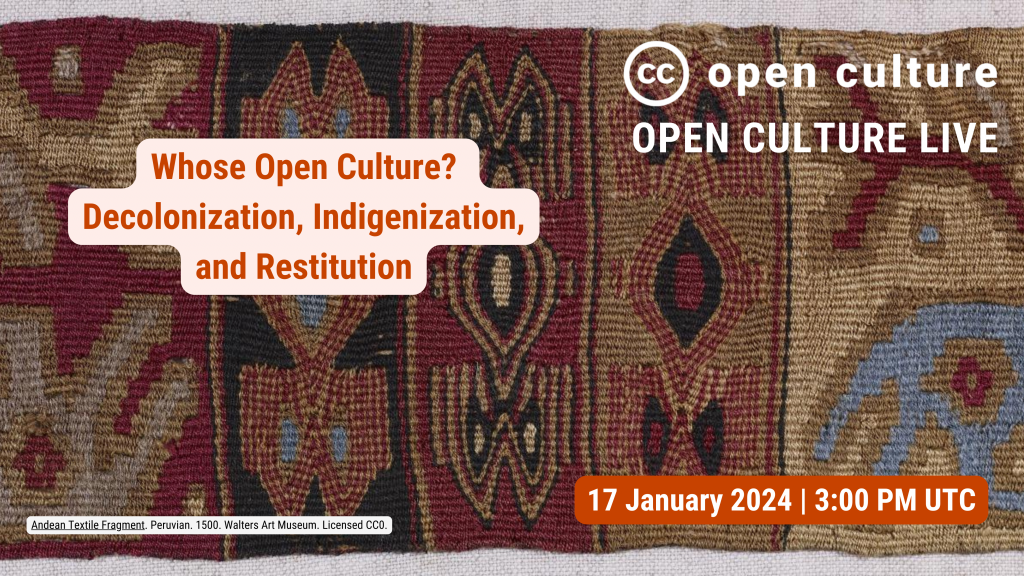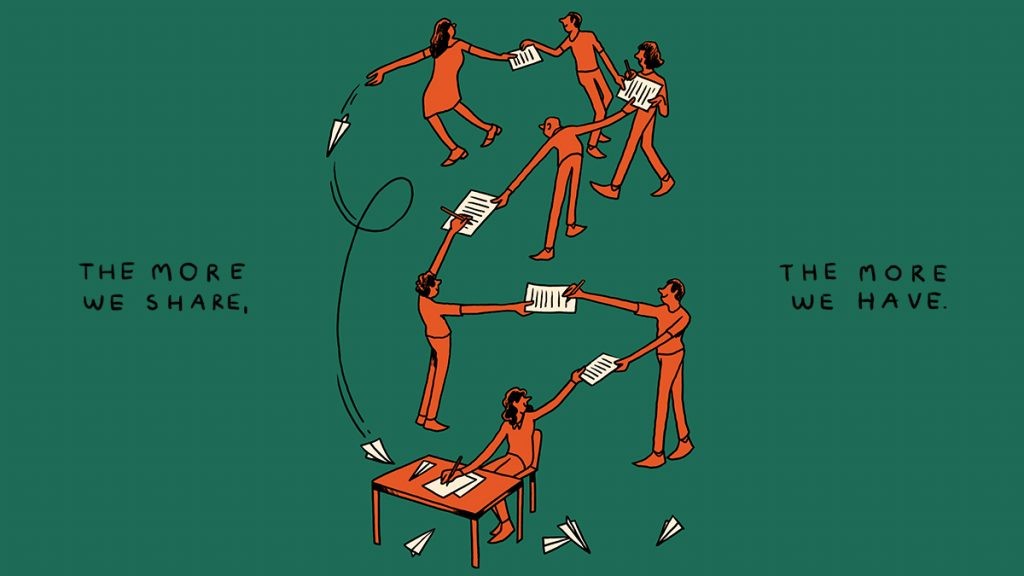Search
Dispatches from Wikimania: Values for Shaping AI Towards a Better Internet
by Shannon Hong, Creative Commons Better Internet, Policy post Isolated Araneiform Topography, Public Domain Mark. https://flic.kr/p/2prGXV7
Isolated Araneiform Topography, Public Domain Mark. https://flic.kr/p/2prGXV7
Isolated Araneiform Topography, from UAHiRISE Collection on Flickr. Public Domain Mark. AI is deeply connected to networked digital technologies — from the bazillions of works harvested from the internet to train AI to all the ways AI is shaping our online experience, from generative content to recommendation algorithms and simultaneous translation. Creative Commons engaged participants…
Shannon Hong
personJohn Okewole
personFernando Daguanno
personDan McGuire
personTetiana Kolesnykova
personDr. Suma Parahakaran
personLisa Di Valentino
personRecap & Recording: “Whose Open Culture? Decolonization, Indigenization, and Restitution”
by Jocelyn Miyara, Brigitte Vézina, Connor Benedict Open Culture post “Andean Textile Fragment” by Peruvian. 1500. Walters Art Museum., here slightly cropped, is released into the public domain under CC0.
“Andean Textile Fragment” by Peruvian. 1500. Walters Art Museum., here slightly cropped, is released into the public domain under CC0.
In January we hosted a webinar titled “Whose Open Culture? Decolonization, Indigenization, and Restitution” discussing the intersection of indigenous knowledge and open sharing. Our conversation spanned a variety of topics regarding indigenous sovereignty over culture, respectful terminology, and the legacy of colonialism and how it still exists today.
CC Open Education Platform Activities: 2023 in Review
by Jennryn Wetzler, Werner Westermann, Tetiana Kolesnykova, Dan McGuire, Dr. Suma Parahakaran, Lisa Di Valentino, John Okewole, Fernando Daguanno About CC, Community, Open Education, Open Knowledge post
The CC Open Education community had a busy 2023! Five project teams, spanning nine countries, worked on open education projects ranging from developing STEAM, interactive, and climate change-related OER, to international curriculum alignment and translation work. Community members also worked on multimedia resources supporting the UNESCO Recommendation on OER, and presented in CC’s biannual Open…